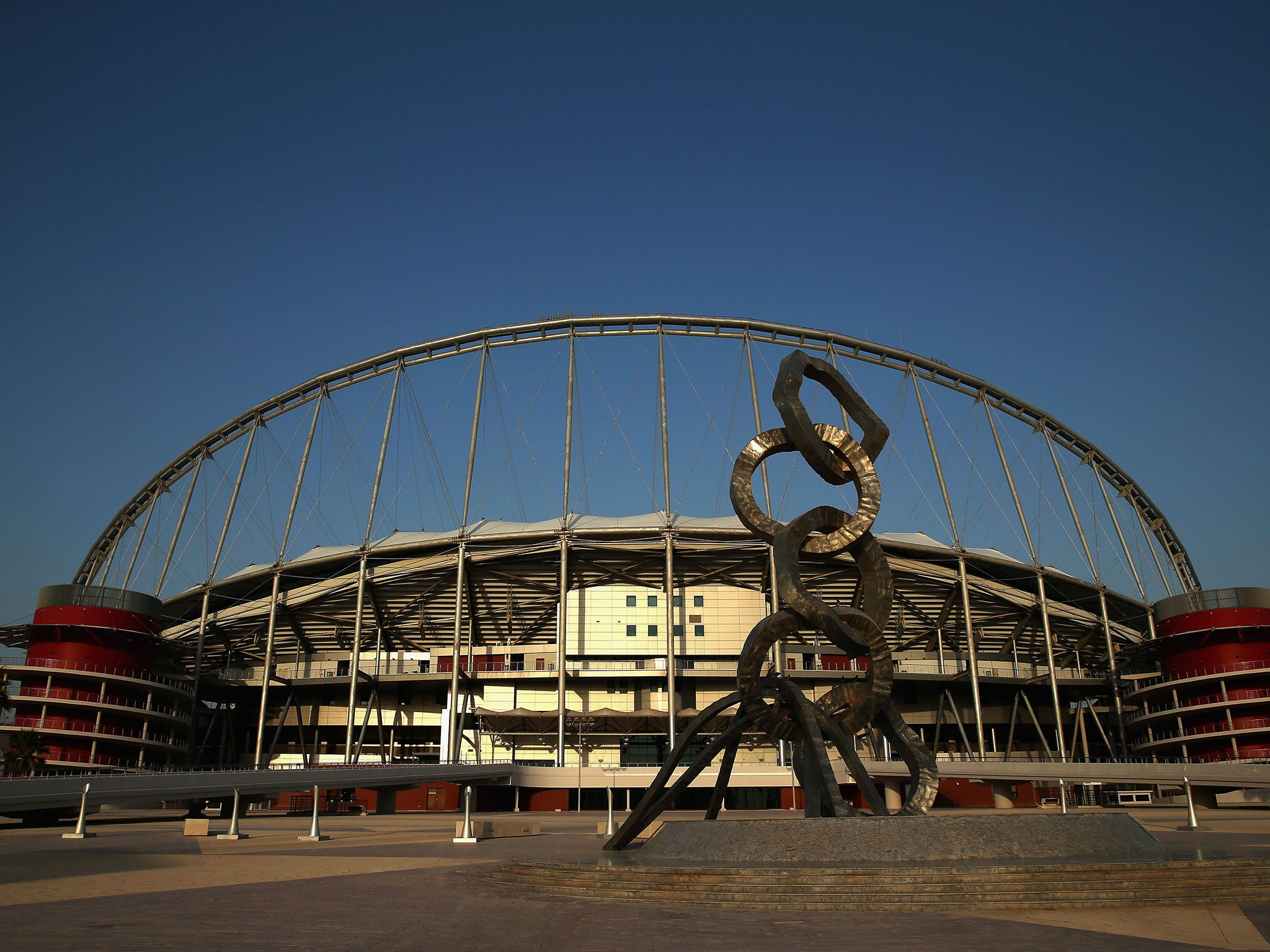Doha wins athletics as Qatar controversy increases
Vote was made by the IAAF in Monaco, Doha beating Eugene and Barcelona

On a day when Qatar’s winning bid to host the 2022 World Cup came under further scrutiny, its capital, Doha, was awarded the 2019 IAAF World Athletics Championships.
The decision, which brought immediate condemnation , comes just a week after Qatar was warned by Amnesty International that the steps it has taken to address its dire record on workers’ right in the build-up to the 2022 World Cup were “woefully insufficient”.
The conditions endured by the mostly migrant workers constructing World Cup stadiums is not the only issue. Also yesterday, the International Olympic Committee announced it will include non-discrimination on sexual orientation in its charter. Currently in Qatar, those who are gay, bisexual or transgender face the threat of imprisonment.
Britain’s 400 metres world champion Christine Ohuruogu also admitted she is “concerned” that Doha’s extreme heat will cause problems for the athletes in 2019 – even though the organisers are moving the World Championships from the traditional August date for the first time to the end of September.
Doha had been earmarked as the clear favourite to win the bidding process for the championships, beating off the other bidders, Eugene, in Oregon, and Barcelona. The Catalan city had been banking on its history while Eugene had pushed its credentials as “Track Town”, a city that lives and breathes athletics. But both sales pitches fell on relatively deaf ears, as Doha earned 12 votes to Eugene’s nine and Barcelona’s six in the first secret ballot before the Qatari capital won the second round over Eugene 15-12.
Doha has long attempted to mark itself as a sporting hub. It is an established location on the athletics Diamond League calendar and previously bid to host the 2017 World Championships, only to miss out to London. This time its gargantuan spend on hi-tech stadiums and technology dwarfed what Eugene and Barcelona had to offer in the eyes of the IAAF.
Qatar’s Sports Minister, Salah bin Ghanem bin Nasser al Ali, last week pledged to address the issue of workers’ conditions. But Amnesty’s head of refugee and migrant rights, Sherif Elsayed-Ali, warned that Qatar’s response “to migrant labour abuses has not been much more than promises of action and draft laws. By failing to act quickly to address the gaping holes in its human rights record, Qatar risks seriously damaging its credibility and calling into question its commitment to human rights.”
But the IAAF president, Lamine Diack, backed Qatar, saying: “I’m convinced they are committed to sport and are doing the right things and it will continue like that.”
As for the notorious heat, officials believe they can address that by scheduling the event between 26 September and 8 October when temperatures are about 35C, not unheard of at past World Championships.
Yet Ohuruogu said: “To have the extra pressure of your body having to work against that heat, I just wonder how many people will manage. Maybe they’ll have air-conditioned tracks. I hope they’re sensible about it. It’s a concern.
“If it does get uncomfortably hot and starts encroaching into the area of health and safety, you really have to think about where you are making athletes go to.”
The former world 400m hurdles champion Dai Greene, who had to spend a week in bed after overheating in Doha in training in 2010, also raised fears of empty seats at the event.
Join our commenting forum
Join thought-provoking conversations, follow other Independent readers and see their replies
Comments
Bookmark popover
Removed from bookmarks